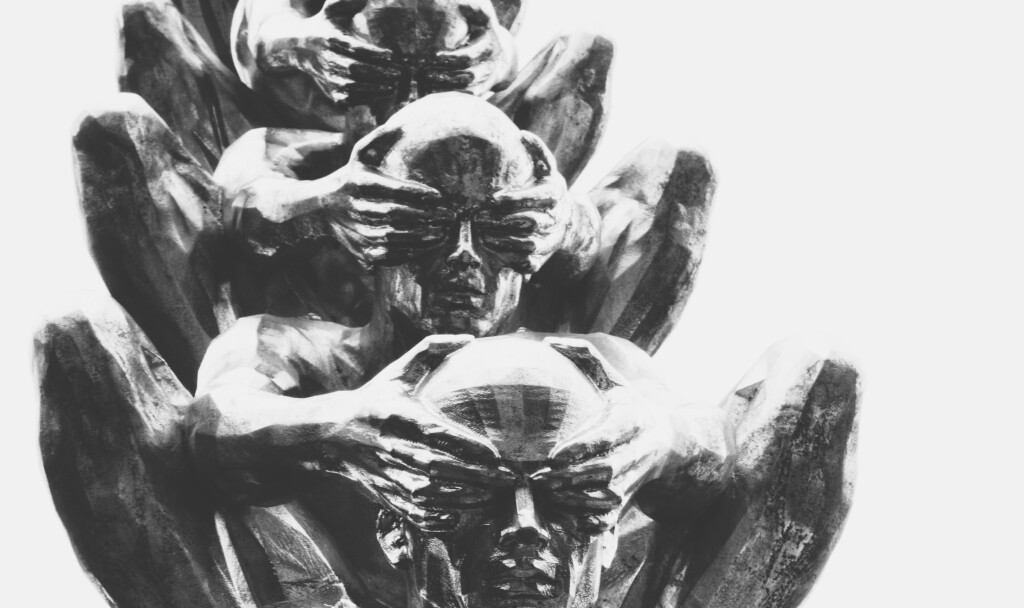Parashat Pinhas
Numbers 25:10-30:1
We read again the extraordinary story of the Daughters of Tz’lof’had, who courageously stand up for their rights before Moses, the community and before God, Who had excluded them in the Torah’s system of inheritance laws. As the sole survivors of their deceased father, they demand that they be given their father’s portion in the Promised Land. God ratifies their demand, saying , “The daughters of Tz’lof’had speak correctly/honestly.” (Num. 27:7) To our surprise, we are witnesses as the Torah’ laws are changed by God’s decree. I have discussed this amazing story before (- see, for instance, Sparks for 2012, 2016 and 2017).
A striking Rabbinic comment on God’s acceptance of the justice of the daughters’ demand is quoted by Rashi: “This is proper [says God]. This is actually the way this part of the Torah is written before Me in Heaven!’ This tells us that their eyes saw what Moses’ eyes did not see.” The implications of this statement are provocative. We will focus on only two questions, interconnected, that immediately arise – why were the daughters able to see what God had really intended, and why was Moses not able to see it? I have discussed the first half of this double-sided question before (- Sparks 2012). Now I wish to focus on the second half – how could Moses be blind to God’s Will as originally intended for the Torah? If the daughters could see the merit and justice of their cause, why had Moses disregarded it before?
One possible answer is that Moses was used to ignoring the needs and rights of women in general. He lived at a time of rampant patriarchy, a hierarchical system that the Torah only partially and intermittently limits or rectifies. The courage of these women to find their voice is all the more remarkable when we remember this societal context. They teach us that they were able to see what Moses was unable to see. But their vision would have been lost had they not also given it a voice.
Yet, I think there is another, more personal element to Moses’ failure to see this element of the Torah, originally willed by God, an element that should have been clearly visible to him. Perhaps Moses was blind to the injustice of these women being disenfranchised from the land because he was, himself, disenfranchised from the land and had made peace with his situation.
In fact, Moses was doubly disenfranchised from the land. He was destined by God to die and never enter the land. But, and moreover, as a Levite, he was excluded from having a portion in the land. Moses had learned to accept these Divine decisions. But it would have been a mistake to extrapolate from his own acceptance that everyone else should also accept such a disinheritance. He allowed his own humility and submission to God to blind him to the just desserts to which others were entitled. His humility led him astray and then his humility saved the day. For, thankfully, it was his humility that allowed him to hear the daughters’ voices and, instead of insisting that he was right, he presented them before God for judgment. The courage of the Daughter’s of Tz’lof’had is amazing. So is Moses’ humble willingness to grow and learn from them.
This is a lesson we all should learn as we mark the anniversary of the founding of our country this July 4. To fulfill our country’s initial intention we need to hear the voices of those whose clear vision and calls for justice have been too long ignored.
Shabbat Shalom
Rabbi David Greenstein
Subscribe to Rabbi Greenstein’s weekly d’var Torah
Image: Jeremy Lishner on Unsplash
Thank you to John Lasiter for suggesting the title and selecting an image for this Torah Sparks – Rabbi Greenstein
- Toby Stein: In Memoriam - Thu, Feb 8, 2024
- Faithfulness and Hope: Parashat Sh’lach - Thu, Jun 23, 2022
- Past Their Prime: Parashat B’ha`a lot’kha - Thu, Jun 16, 2022

